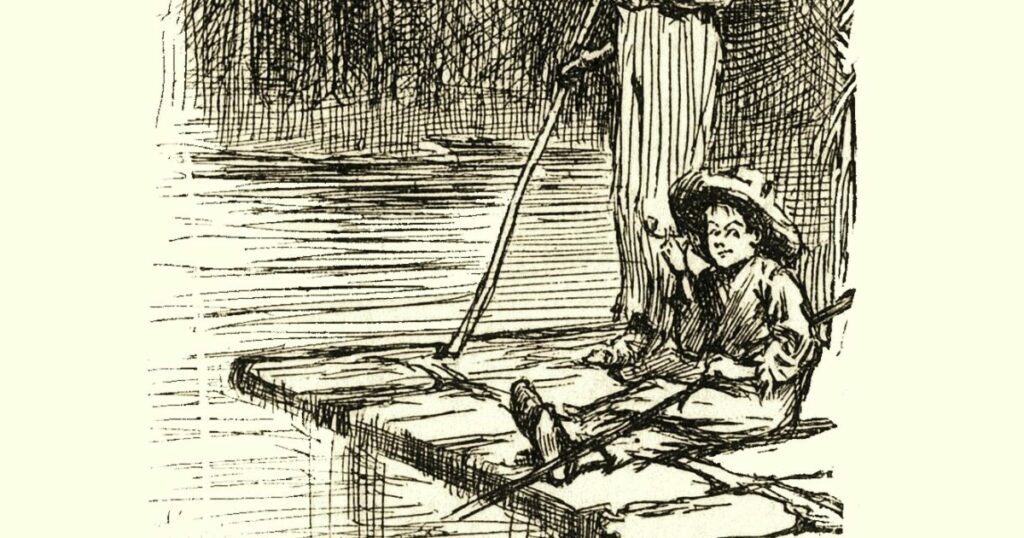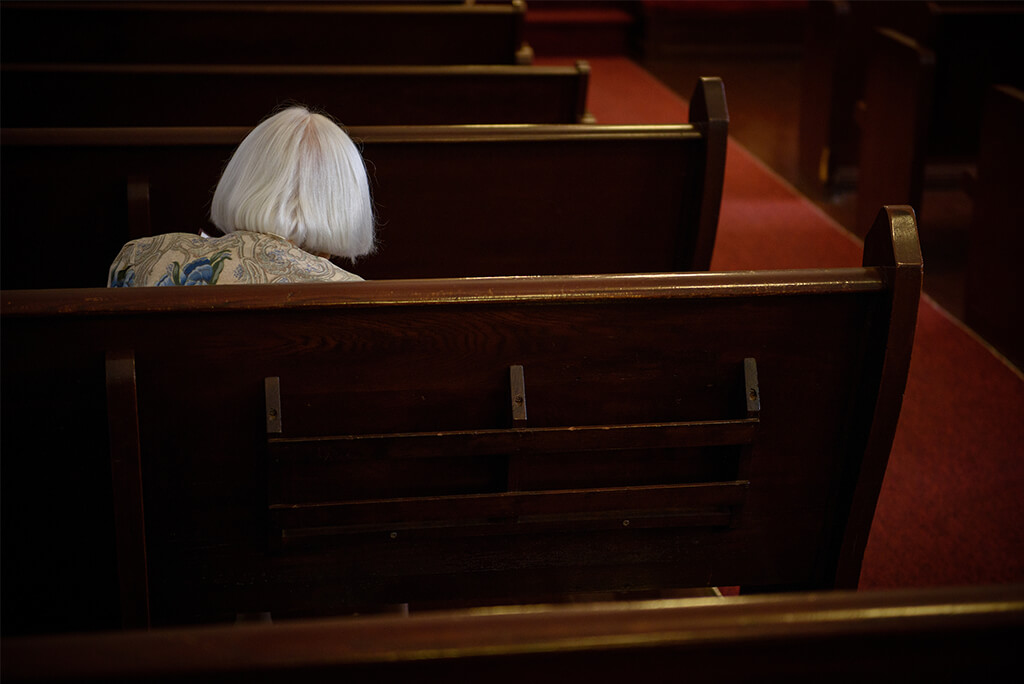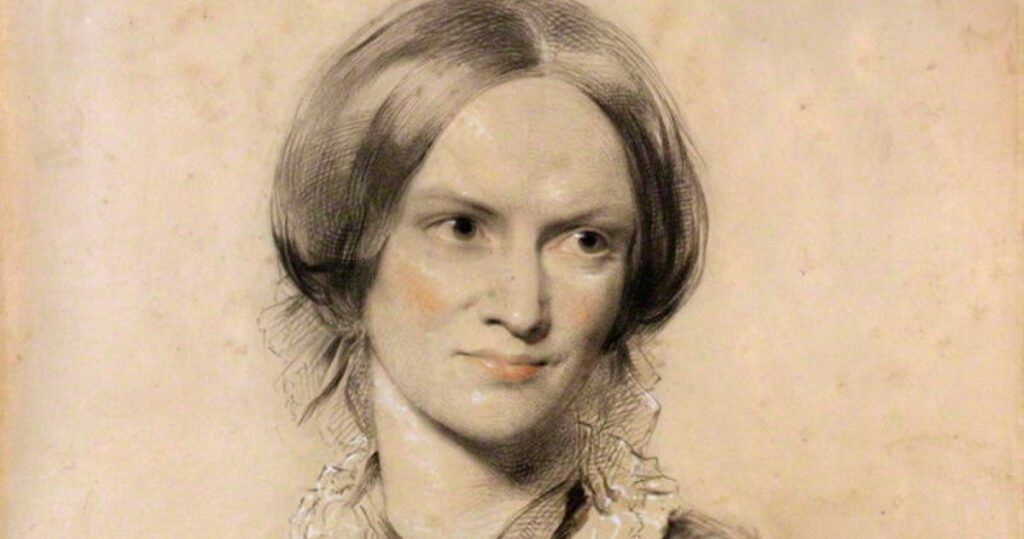A literary reflection by Cheryl Magness on Mark Twain's "The Adventures of Huckleberry Finn." This is one installment of a monthly series providing reflections on works of literature from a Lutheran perspective.
“All right, then, I’ll go to hell.”
Thus does the teenaged orphan, Huckleberry Finn, resign himself to eternal damnation in Chapter 31 of 19th-century American author Mark Twain’s masterpiece, The Adventures of Huckleberry Finn. Huck, after agonizing over whether to turn in Jim, the runaway slave, decides he can’t betray the friendship that has formed between the two during their shared journey down the Mississippi River. In not doing what the perverse social order of his day tells him is the moral course of action — reporting the fugitive slave — he believes he is forsaking not only that social order, but God.
Huck is not Lutheran, but at this moment he almost sounds like one. Lutherans understand that we are to submit to those whom God has given authority over us, such as our parents, teachers and civic leaders, even when we disagree with them. But what if, by doing so, we cause harm to our neighbor?
Huck is not thinking in Lutheran terms, but as he debates what to do, he finds himself at a crossroads. He has been conditioned to view slaves — and all black people — as less than human. Yet the many weeks he has spent with Jim have shown him Jim’s humanity. What to do? Huck is sure that, in deciding to protect Jim, he has committed an act for which there is no redemption:
“It was awful thoughts, and awful words, but they was said. And I let them stay said; and never thought no more about reforming. I shoved the whole thing out of my head; and said I would take up wickedness again, which was in my line, being brung up to it.”
A ‘deformed’ conscience
Twain described Huckleberry Finn as “a book of mine in which a sound heart & a deformed conscience come into collision & conscience suffers a defeat.” Lutherans, of course, know there is no such thing as a “sound heart.” The human heart is hopelessly corrupted by sin, unable to repair itself, which is why God sent His Son to do the repairing.
But what Twain is getting at is that while Huck has the correct instinct — that inborn sense of right and wrong that C.S. Lewis called the “Law of Nature,” i.e., his moral compass, or what Twain calls his “conscience” — it has been warped by his community. Let’s set aside the Lutheran question of whether, and to what extent, a subject must follow the dictates of an unjust ruler. Huck assumes that the ruler — in this case the slaveholding, antebellum South — is the just one and that he, in having compassion for Jim and wanting to protect him, is the one lost to wickedness. When Huck tries to pray to God for the strength to turn Jim in as the law demands, his “deformed conscience” runs pell-mell into his “sound heart,” and he throws up his hands in despair:
“I about made up my mind to pray; and see if I couldn’t try to quit being the kind of a boy I was, and be better. So I kneeled down. But the words wouldn’t come. Why wouldn’t they? It warn’t no use to try and hide it from Him. Nor from me, neither. I knowed very well why they wouldn’t come. It was because my heart warn’t right; it was because I warn’t square; it was because I was playing double. I was letting on to give up sin, but away inside of me I was holding to the biggest one of all. I was trying to make my mouth say I would do the right thing and the clean thing … but deep down in me I knowed it was a lie—and He knowed it. You can’t pray a lie—I found that out.”
As readers, we may not be able to relate to Huck’s immediate dilemma, but we can certainly relate to the experience of having those in authority over us espouse what we know is wrong — and to trying to pray for what we know we should, while deep down, we would like to pray for something else.
A failed community
The conflict between Huck’s “sound heart” and “deformed conscience” — which, in literary terms, might be identified as a conflict between the individual and society — resonates throughout the book. Huck is a free spirit, a social outcast, and in truth, he kind of likes it that way. No mention is ever made of Huck’s mother. His father is a ne’er-do-well drunk who disappears for long periods of time, showing up periodically only to physically abuse his son. In spite of Huck’s fondness for his self-reliant existence, his longing for a real family is poignantly reflected in the series of family stories he constructs throughout the book as he assumes various false identities to serve the situation at hand.
Meanwhile, the community that should serve, in loco parentis, as a source of bodily care and right teaching for Huck fails him time and time again. As he and Jim float farther and farther south, having missed the northward turn at Cairo that would have taken Jim to freedom, they meet one representative after another of what Twain, in one of his essays, called “the damned human race”:
- The Grangerford and Shepherdson families, who attend church together on Sunday only to spend the rest of the week literally trying to kill each other (and sometimes succeeding) for reasons no one can remember;
- The “Duke” and “Dauphin,” a couple of con men who pass themselves off as deposed European royalty while running a series of scams along the river on people so dumb and self-serving they almost seem to deserve it;
- The town of Bricksville, which portrays some of the worst aspects of humanity in Twain’s depiction of a senseless killing, the ignorance and cruelty of the mob, and the hatred that human beings are capable of; and
- The unnecessary continued imprisonment of Jim — after, unbeknownst to himself, he has been legally freed — so that Tom Sawyer can play a game.
Against this backdrop of horror, though, there are flashes of true community. Early on, when the Widow Douglas first takes Huck in, determined to “sivilize” him, Huck chafes under the rigor of rules, school and a schedule. But the longer he lives with the widow, the more he comes to appreciate the blessing of an orderly life with someone who cares about you: “The longer I went to school the easier it got to be. I was getting sort of used to the widow’s ways, too. … She said she warn’t ashamed of me.”
It is the Widow Douglas who teaches Huck about prayer — “she said the thing a body could get by praying for it was ‘spiritual gifts’” — and about the need to serve one’s neighbor: “I must help other people, and do everything I could for other people, and look out for them all the time, and never think about myself.”
Judge Thatcher, too, looks out for Huck, taking care of his money for him and, along with the Widow Douglas, attempting to nullify Pap’s legal claim as Huck’s parent (the attempt fails). And in the long episode at the Phelps farm at the end of the novel, when Huck and Tom carry out their elaborate deception, with Huck pretending to be Tom and Tom pretending to be his brother, Sid, Huck gets a taste from Tom’s Aunt Sally of what it is like to have a mother:
“And then when I went up to bed she come up with me and fetched her candle, and tucked me in, and mothered me so good I felt mean, and like I couldn’t look her in the face; and she sat down on the bed and talked with me a long time. … And twice I went down the rod, away in the night, and slipped around front, and see her setting there by her candle in the window with her eyes towards the road and the tears in them; and I wished I could do something for her, but I couldn’t, only to swear that I wouldn’t never do nothing to grieve her any more.”
True community
But it is Jim, more than any other character, who comes closest to providing Huck with a true sense of family. In their long days of floating down the river on a raft — a symbol, variously, of freedom, family, honesty and peace — they talk about all manner of subjects, learning from and deepening in understanding for one another. Removed from a system that says a black man has less human worth than a white boy (even a poor, orphaned white boy), they learn to live in true community with each other, to trust each other, to speak honestly with one another, and to consider each other’s feelings. When Huck — who is still, after all, a boy — plays a mean trick on Jim after the two lose each other in the fog, Jim responds not as a slave but as Huck’s equal — one who is now a friend and, perhaps, even a father figure:
“When I got all wore out wid work, en wid de callin’ for you, en went to sleep, my heart wuz mos’ broke bekase you wuz los’, en I didn’t k’yer no mo’ what become er me en de raf’. En when I wake up en fine you back agin’, all safe en soun’, de tears come en I could a got down on my knees en kiss’ yo’ foot I’s so thankful. En all you wuz thinkin ‘bout wuz how you could make a fool uv ole Jim wid a lie. Dat truck [the debris on the raft] dah is trash; en trash is what people is dat puts dirt on de head er dey fren’s en makes ‘em ashamed.”
Huck, once again going against everything he’s ever been taught, apologizes to a black man — “but I done it, and I warn’t ever sorry for it afterwards, neither. I didn’t do him no more mean tricks, and I wouldn’t done that one if I’d a knowed it would make him feel that way.” In Huck and Jim, the reader sees a picture of real community.
But why should Lutherans read Huckleberry Finn?
Commenting on Mark Twain’s literary impact, 20th-century writer Ernest Hemingway said, “All modern American literature comes from one book by Mark Twain called Huckleberry Finn. … There was nothing before. There has been nothing as good since.”
Yet in recent years, the book has been criticized and even censored because of what some critics see as insensitive language and a demeaning depiction of blacks. The rejoinder to that criticism is that there are few novels that argue more powerfully against racism and slavery than Huckleberry Finn. Not to mention, Twain’s humor, pathos and way with words are reasons enough to read the book. But beyond its sheer excellence, its place in the literary canon and its incisive social commentary, why should Lutherans read Huckleberry Finn?
Because the story it contains is true. This is, in fact, the heart of all excellent literature: it tells the truth. In presenting a slice of the human experience, with whatever characters are used, in whatever time and place is written about, great literature shows us something about ourselves. This is what Huckleberry Finn does. It depicts the depths of human sin and cruelty while, at the same time, showing us the heights of human goodness. It reveals the ugliness of a failed community, but also reminds us of our human need for community and the places it may be found.
And while Mark Twain — one whose religious views, or lack thereof, have long been debated — does not write as a Lutheran, or even as a Christian, he writes from a place of moral conviction, acknowledging in no uncertain terms that there is such a thing as right and wrong and that we can know the difference and seek to order our lives according to it.
It has been oft noted that, in Huckleberry Finn, Twain uses a literary device known as the “innocent eye.” In his naïve descriptions of the world around him, Huck often does not see the significance in his words that we, his readers, see.
As I prepared to write this reflection by reading Huckleberry Finn for the umpteenth time, it struck me that Twain himself provides something of an innocent eye. Whether he professed faith in God or not, he wrote a book of truth, and there is no truth that does not come from the one, true God.
Our Lord tells us that no life exists except that created by Him and that He loves all of the lives that He has made. In giving readers an unflinching look at the evil of which human beings are capable and not hesitating to call it evil, Twain affirms evil’s opposite. For people like you and me, who live at a time when evil is increasingly called good, good called evil, and the existence of right and wrong denied altogether, a book that does none of these things is a book worth reading. Thanks be to God that, even as we daily struggle in our own failed communities, we have a community that will never fail us, one created and sustained by the Holy Spirit.
Cover image: “On the Raft,” illustration by E.W. Kemble for “The Adventures of Huckleberry Finn,” 1884.






Interesting study on Huck Finn from a “Lutheran perspective.” Whether exclusively Lutheran or not, it appears to me that the character of Huck Finn reflects Mark Twain’s worldview that hypocrisy abounds and midwestern social and moral values require real life decisions proceeding from the spirit and intent of God’s word, not entrenched legalistic positions firmly held. Twain poked his finger straight into the faces of those, who like the Pharisees of Jesus’ day, applied the law without mercy. Using his typical and not so subtle sledge hammer wit, Twain forces the reader to see how Jesus would a moral duty. I do not know if Twain was saved or lost, but without using the word “grace” he seemed as close to referring to it as any of the great writers of his day. Soli Deo Gloria